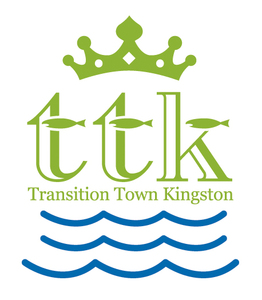Drawdown EcoChallenge, April 4th – 24th, challenged participants to change some daily habits, moving away from more wasteful habits that create more CO2 emissions, to habits that reduce carbon footprints and, would, at scale start to draw down carbon from the atmosphere.
From focusing on zero waste, moving to diets that are plant rich, the platform focused on some of the key solutions highlighted in the Drawdown Project and translated those into daily habits, one time challenges and awareness raising. It was quite a limited range of choices, designed at a global level rather than local level but we thought we’d give it a go. So we put out a call for people to join a TTK team at the last minute, and 12 people joined. We were more or less disciplined in terms of recording what we did..
One person alone travelled 60 fewer miles by car in the three week challenge. Five people ate 111 meatless meals. What would the impact be if everyone just did a little bit across the borough of Kingston? The population of Kingston is about 180,000 people. If only half the population were drivers, 60 fewer miles driven every month would equate to 790 fewer miles over a year per driver. Looking across Kingston, with the average miles travelled per car per year around 8000, everyone reducing their car miles just a little bit is the equivalent of taking about 8000 cars off the road annually saving about 30,000 tons of CO2.
An that’s only one small habit change.
Taking part, we realised, it was actually quite easy to eat more meatless meals, and we became more aware of our habits and how to reduce our carbon footprint. Being part of a team effort meant we committed to more, even if we didn’t always record it.
The next global ecochallenge is in October 2019 – it’s got more choice, you can create your own challenges and commitments – I wonder what we might achieve then.
Alison Whybrow, TTK Eco-Challenge team leader, April 2019
